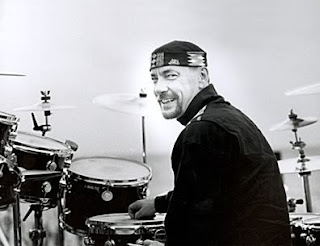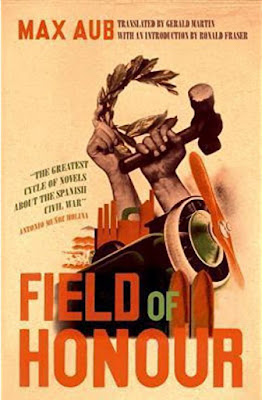The Death of a Restless Young Romantic
On Friday 24 January 2020, a small group of Sydney Rush fans gathered to attend a Sydney 'wake' for the recent passing of Neil Peart. The following text was my contribution to the formalities. Rush never toured Australia and didn't really have a hit song here. But Neil Peart's lyrics, and his phenomenal drumming had a great impact on each of our lives.
I've quoted freely from Neil Peart's lyrics, which are available for all to read on the Rush website .
Neil Peart was a prolific reader who thought deeply about his craft as a writer. There are probably lots of great articles out there -- here's just one I found from 1986, after Power Windows was released. “The Songwriting Interview: Neil Peart” (Bruce Pollock, Guitar for the Practicing Musician, October 1986, transcribed by Gregg Jaeger).
This is a step away from my usual practice on this blog of writing exclusively about fiction. That's because Neil Peart's work may come with a 7/8 time signature in complex, layered tunes, but the poetry speaks for itself.
"The Death of a Restless Young Romantic"
Geoffrey Gates
"Hey now, baby,
Well, I like your smile,
Won’t you come and talk to me
For a little while.
Well, you’re makin’ me crazy,
The way you roll them eyes.
Won’t you come and sit with me.
I’ll tell you all my lies."
“In the Mood”, 1974 – lyrics by Geddy Lee, before Neil took
over the lyric writing duties for Rush.
Almost nothing more need be said.
Though I’m partial to “In the End” from Fly by Night – which is Lee and Lifeson waking up to the fact that
their days as lyric writers are just about over:
"I can see, what you mean.
It just takes me longer."
“As grey traces of dawn tinge the eastern sky, the three travellers,
men of Willow Dale, emerge from the forest shadow. Fording the River Dawn, they
turn south, journeying into the dark and forbidden lands of the Necromancer.”
That’s more like it.
It’s 1975, making Neil about 22 or 23 years of age. “He’s a
restless young romantic – (who possibly) “wants to run the big machine.”
Then comes the radio-friendly epic songs of between 12 and
20 minutes that grace the 70s records from Caress of Steel. “Necromancer”; “Fountain
of Lamneth”, “2112”; “Hemispheres”; the shorter “Camera Eye” from Moving Pictures as a turning point, then
circling back in 2012 to Clockwork Angels,
with its series of connected songs in the convention of the concept album. On
paper, at least, Clockwork Angels–
begins with the classic hero’s journey motifs of the young questor:
“It seems like a lifetime ago – which of course it was, all that and
more … Near our village of Barrel Arbor, the steamliners touched down and
travelled on rails along the Winding Pinion River toward Crown City. Watching
them pass in the night, how I prayed to get away …”
That’s one take on the lyrics – epic quest stories to match epic
fills. Classical references of the provincial autodidact who almost became a
tractor parts salesman.
Another idea.
“Anthem”, Neil’s first RUSH song, ends with:
“Though I know they’ve always / Told you selfishness is wrong
Yet it was for me not you / I came to write this song.”
In introducing “The Garden”, Neil writes: “I have come to
realise that the gathering of love and respect – from others and for myself –
has been the real quest of my life.”
The epic quest; and the personal quest.
By writing for himself and not for others, Neil Peart connected with
so many others who could not write for themselves.
Some of my personal favourite lines – too many to list. You
can sing along in your mind.
“Time Stand Still: I’m not looking back but I want to look around me
now / See more of the people and the places that surround me now.”
“Lakeside Park: Willows
in the Breeze / Lakeside park – so many memories.”
(That’s so rock and roll).
“Just between us / I think it’s time for us to recognise / the differences
we sometimes feared to show / Just between us / I think it’s time for us to
realise / The spaces in between / Leave room for you and I to grow.”
“Some will sell their dreams for small desires / or lose the race to
rats / get caught in ticking traps / And start to dream of somewhere to relax
their restless flight.”
(Their restless flight – your restless flight)
“It’s understood / By every single person / who’d be elsewhere if they
could / So far so good / And life’s not unpleasant / in their little neighbourhood:
they dream in Middletown”
“Like a million little crossroads / through the backstreets of youth /
every time we turn a new corner / a tiny moment of truth”
“Love is blind if you are gentle / Love can turn to a long, cold burn”
“Suddenly you were gone / from all the lives you left your mark upon”
“The clouds prepare for battle / In the dark and brooding silence /
Bruised and Sullen Stormclouds/ Have the light of day obscured”
“I remember / How we talked and drank into the misty dawn / I hear the
voices / We ran by the water on the fresh summer lawn – I see the footprints…”
“Spirits Fly on Dangerous missions / imaginations on fire / focused
high on soaring ambitions / consumed with a single desire.”
“And the men who hold high places / Must be the ones who start / to
mould a new reality / closer to the heart.
You can be the Captain / I will draw the Chart / Sailing
into destiny / Closer to the Heart”
“We each pay a fabulous price / For our vision of paradise / BUT a spirit
with a vision / Is a dream – with a mission.”
(Songs, ultimately, about dreamers – whether they be epic romantic
quests, or personal ones – often both on the same record, sometimes in the same
song. The first Rush words I think I heard is a little fictional piece after
the nuclear apocalypse. It is 1984 – the same year as Midnight Oil’s dramatic
“Red Sails in the Sunset”. )
“An ill wind [which] comes arising across the cities and plain /
There’s no swimming in the heavy water – No singing in the acid rain / Red
Alert / Red Alert”
(A clever, poetic play on words. And then, in the chorus,
the connection to another – often the centrepiece of Peart’s emotional
philosophy, closer to the Heart. The
simple way he cuts through all the politics of the period)
“The world weighs on my shoulders / But what am I to do? You sometimes
drive me crazy – But I worry about you. I know it makes no difference / To what
you’re going through / But I see the tip of the Iceberg, and I worry about
you.”
“I have come to realise that the gathering of love and respect – from
others and for myself – has been the real quest of my life.”
“I Remember”
“The night is black/without a moon/the air is thick and still / the
vigilantes gather on / the lonely torchlit hill … Those who know what’s best
for us – Must rise and save us from ourselves.”
“I’m not giving in to security under pressure / I’m not missing out on
the promise of adventure / I’m not giving up on implausible dreams …”
(There was more to the anthem that just writing a song for
himself, though you have to learn to lift your head above the crowd, and be an
Oak – and for this, he was not always popular with the Maple intelligentsia):
“Anthem of the heart and mind / a funeral dirge for eyes gone
blind / We marvel after those who sought
/ New wonders in the world they wrought.”
We marvel still.
“The future disappears into memory / with only a moment between /
forever dwells in that moment / hope is what remains to be seen.”
Bloody marvellous guitar solo and chorus to end.
Both 3rd and 4th member of Rush,
drummer and professor.
“I can see, what you mean.
It just takes me longer.”




Great tribute Geoff. Had I known about the wake, I would have been there. I'm glad you quoted "Jacob's Ladder" - a great song in every way. RIP Neil...
ReplyDelete